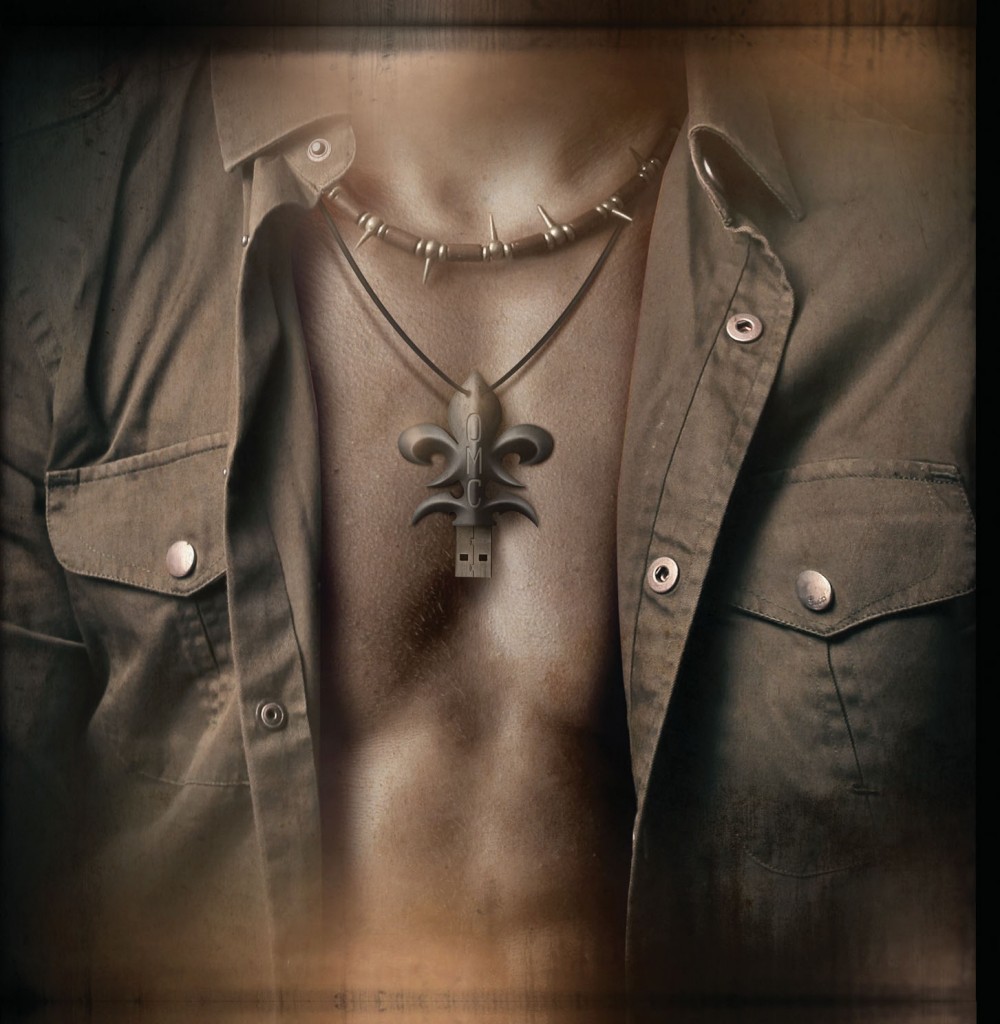 Throughout his impressive career as a hard rock vocalist/songwriter, Geoff Tate has never been afraid to challenge listeners to think while they’re listening. For three decades, he has always preferred to compose music steeped in lyrical and conceptual depth, instrumental intricacy and imbued with varied emotional layers and textures.
Throughout his impressive career as a hard rock vocalist/songwriter, Geoff Tate has never been afraid to challenge listeners to think while they’re listening. For three decades, he has always preferred to compose music steeped in lyrical and conceptual depth, instrumental intricacy and imbued with varied emotional layers and textures.
As the long-time lead singer for the progressive metal band Queensryche, Tate wrote or co-wrote material for a dozen albums, some of which, particularly Operation: Mindcrime (1988) and 1990s Empire are considered hard rock classics. Overall during his nearly 30 year tenure with the band, Queensryche sold upwards of 20 million albums and toured the world relentlessly.
A messy break with the rest of the band in 2012 led, temporarily, to dueling Queensryches with each incarnation touring and releasing an album. Legal remedies were arrived upon in 2014 whereupon the other original members of the band got to keep the Queensryche brand, while Tate was given exclusive rights to the Operation: Mindcrime name.
It is under this banner that he is releasing a trio of albums starting with The Key, which came out on Sept. 18 worldwide on the Frontiers Music label. And, true to form, The Key is a lush, deep, conceptual release that sees a cohesive (and at times deliberately elusive) narrative thread run over its 12 tracks.
“There’s a mystery to the overall story, so I can’t go into great detail, because it unfolds over the three records. It’s based in the here and now and portrays what the world is kind of turning into. We are seeing sweeping social changes happening all around the word because we’re so plugged in now with telecommunications being what they are. We’re able to comment and discuss stories that are going on halfway around the world in real time and it’s exciting. It’s a fascinating time to live in and to witness and comment on,” Tate explained.
“My story is set in that framework. As parents, we start very early programming our kids, and another word for that is teaching. We teach them definitions of everything around them – tables, chairs, the sky – and those definitions define our version of reality. In my story, four individuals come together and invent a technology that allows the user to see a different reality. And there are huge implications for this; how do we perceive space and time in relation to ourselves any more? The implications of what this program can do are enormous and because of thata conflict arises between the four people.
“Some want to take this technology and develop the program and sell it and get fabulously rich. Others in the group have a more altruistic viewpoint and want to give it to the world because the positive changes that would ensue would be beneficial. So this first album, The Key, introduces the technology and the four characters and shows the conflict that arises.”
Like the album Operation: Mindcrime, The Key and the two subsequent, as yet unnamed, parts of the trilogy were sketched out first as a story in broad strokes before the music was crafted. Tate explained that this is how he often writes, especially for his more conceptual albums.
“After all the legal stuff, my wife and I took a trip to Northern Spain and walked along the Camino de Santiago Pilgrim Trail, which was an amazing experience. And I was inspired to write this story on the trail. After writing the story I broke it down into outline form and when I got home, started composing music to fit the outline and then fine-tuned it from there. On this project and many other projects I have typically done it this way; write the entire story, break it down and assign the musical events, almost like creating scenes in a film,” he said.
“I like doing it this way because it gives me a lot of room to tell the story. Because my stories are based on life experiences and life experiences are dynamic, the musical elements also have to be dynamic. There should be moments of intensity, moments of release, moments of reflection and moments of indecision. It should cover a lot of emotional ground.”
When he started composing and recording the music, Tate then called in musician pals who would become the nucleus of the Operation: Mindcrime project, including long-time pals Kelly Gray and Scott Moughton, both of who were playing in Tate’s version of Queensryche and who have known the singer for more than three decades. Simon Wright (AC/DC, DIO) laid down most of the drum tracks.
There were a number of well-known folks dropping by to make special contributions as well, including Megadeth’s Dave Ellefson, John Moyer (Disturbed, Adrenaline Mob), Brian Tichy (Whitesnake, Foreigner), as well as another long-time Tate friend Randy Gane on keyboards and a turn on vocals by Mark Daly of The Voodoos.
“I see this as a project rather than a band in the traditional sense. It’s kind of an open project where everybody can be involved given their schedules and time constraints. And we’re planning so that everybody who has participated on the record will be on the tour at some point. I designed it so none of us were locked together, that we could get together and do things and then split apart and have them follow their own musical path,” said Tate.
“Most of us, at this point in our careers, want to play with other people and want the freedom to be able to go tour with so and so, come back and do an album, and then go do something else. And it leaves it really open ended for me, which I really like, because it means I am not too heavily dependent on the same people every time.”
Even in the age of downloading, the pre-eminence of singles, poor quality MP3s and a sense that music has become just another disposable commodity, Tate feels there is still an audience for albums, for hard rock and for conceptual work that people will listen to from cover to cover.
“There are markets all over the world and they’re all unique. Japan is very different than Europe, and Europe is very different than North America. In Europe, when they grab onto you they are pretty loyal when it comes to buying your music and coming to see you play. In North America, we still have a pretty loyal audience, but it’s grown up and doesn’t go to shows like they used to. They want to sit and listen to the music and hear the songs from their teenaged years. America is also pretty fixated on hip hop and Bro Country – that’s really the big thing here. Over in Europe it’s not so much that, although there is a strong DJ scene over there. But typically the people who listen and enjoy hard rock music, don’t go out to the disco,” he said, adding that he has never considered current trends, record-purchasing demographics or similar concepts when creating music.
“With this album, as with most of my other albums, I never really thought about how it’s going to affect people or how they are going to take it, because it’s just an unanswerable question. Ever since I started out, some people get what I do, some people don’t get it and some people eventually learn to get it. But then some people never do – it’s just completely out of my hands. So the only think I can do as a writer is write what I feel, write what is interesting to me and assume that some people will like it and some people won’t.”
Back in 1988 a lot of people liked the Operation: Mindcrime album. Even though it came out during the peak of the sex and sleaze hair metal era, the sophistication of the musical and lyrical content in the album-length dystopian creation by Queensryche hit a nerve, and certainly set the band apart from its contemporaries.
“I think there are a lot of reasons why that album made such an impact. If you think back, the derogatory term ‘hair metal’ wasn’t coined until the 1990s when the new bands were trying to separate themselves from what came before them. So the genre wasn’t seen as being as homogenous at the time as it later was, meaning we never really suffered any comparisons to other bands of that era. Secondly, we were also signed to a major label. EMI at the time was a huge worldwide company and they threw a lot of money at Mindcrime – a lot of promotion and just a scary amount of money that you don’t see nowadays. Human nature being what it is, if you hear that an album is great enough times, you’re going to check it out,’ Tate explained.
“And I think it’s become more respected over time. When we put it out and started playing it live a lot of people were scratching their heads and wondering what we were doing. People were saying it was different and they didn’t completely understand it, which I have gotten used to people saying throughout my career. But over time they got used to it and started understanding it and relating to it and then it became something important in their lives.
“It’s also one of those albums that, because of the depth and complexity of some of the songs, you still get something new out of it every time you listen. And it really became a hallmark of my songwriting right to this day.”
When it came to giving a name to his first post-Queensryche project, Tate felt that Operation: Mindcrime suited it to a tee.
“The name is really known to fans of my music, probably more so than my name. So that’s one simple reason. And two, I wanted a name that would set the tone for the style of music that I am concentrating on doing now, which is conceptual albums. Operation: Mindcrime was a conceptual album that was fairly well known to my musical fans. So that’s why I went with the name. It just fits,” he said.
The second part of the trilogy is nearing the completion of the mixing stage, while part three has entered the fine tuning phase as far as the writing goes. Tate said he hopes to have all three albums released within a year, and that Operation: Mindcrime will be hitting the road this fall.
“My plan is to play The Key in its entirety in the middle part of the show and down the road, hopefully we’ll be able to play the whole trilogy in one night, but to be honest I haven’t really thought that far ahead. Right now I am concentrating on getting things ready for our tour of Europe starting in November before heading back to North America in February for a run that should last until spring,” he said.
For more information on Operation: Mindcrime and The Key, visit www.operationmindcrime.com.
- Jim Barber is a veteran award-winning journalist and author based in Napanee, ON, who has been writing about music and musicians for a quarter of a century. Besides his journalistic endeavours, he now works as a communications and marketing specialist. Contact him at jimbarberwritingservices@gmail.com.
SHARE THIS POST:

